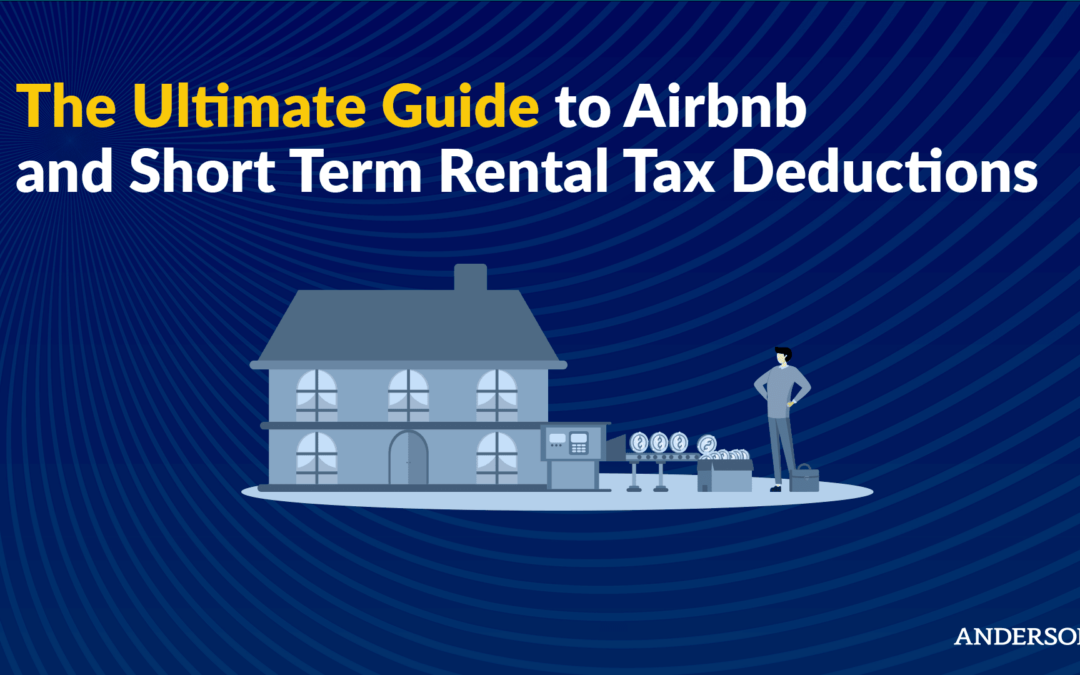Business expenses that are typically tax-deductible include rent, utilities, supplies, salaries, and advertising costs. These deductions help to lower a business’s taxable income, reducing overall tax liability.
When filing taxes, it is essential for businesses to keep accurate records to support their deductions and ensure compliance with tax laws. Properly managing deductible expenses can result in significant savings for businesses of all sizes. By understanding what expenses qualify for tax deductions, businesses can maximize their savings and improve their financial health.
It is crucial for business owners and entrepreneurs to stay informed about tax regulations and seek professional advice if needed for optimal tax planning and compliance strategies.

Credit: andersonadvisors.com
Importance Of Knowing Tax Deductions
Understanding tax deductions is crucial for business owners. By knowing deductible expenses, you can minimize tax liability and increase profits. Deducting expenses like office supplies and business travel can lead to significant savings.
Types Of Tax-deductible Business Expenses
Operating Expenses: These are expenses that are necessary for running your business on a day-to-day basis. They include rent, utilities, office supplies, and salaries for employees.
Travel Expenses: If you frequently travel for business purposes, you can deduct the costs associated with transportation, lodging, meals, and even entertainment. Keep proper records to support your claims.
Marketing and Advertising Costs: Any expenses related to promoting and marketing your business, such as website development, social media advertising, print marketing materials, and trade show fees, can be tax-deductible.
Remember, it’s important to keep detailed records and receipts to support your expenses. Consult with a tax professional to ensure you’re maximizing your deductions and complying with all tax laws.
Understanding Non-deductible Expenses
Understand which business expenses are tax deductible by learning about non-deductible expenses. Avoid common overused words and phrases and keep sentences brief. Gain insights into deductible expenses for tax purposes.
Personal Expenses
Business owners often wonder which expenses may be tax deductible. While personal expenses cannot be deducted, there are various business expenses that can offset your taxable income. Personal expenses refer to costs that are unrelated to your business operations, such as groceries or personal vacations. It’s important to maintain a clear distinction between personal and business expenses to ensure accurate tax deductions.
Capital Expenses
Some expenses that are not fully deductible in the year they are incurred fall under the category of capital expenses. Capital expenses are typically larger investments in your business that provide long-term benefits. Examples include the purchase of property or equipment. These expenses may be deductible, but they need to be depreciated or amortized over a period of time rather than deducted entirely in the year of purchase.Tax Professional Advice
To ensure accurate tax deductions and understand the specific eligibility criteria for your business, it’s best to consult with a qualified tax professional who can assist with filing your taxes. They can help determine which expenses are deductible, ensure compliance with tax laws, and maximize your potential tax savings.
Credit: blog.stridehealth.com
Documentation And Recordkeeping
For business owners, maintaining detailed records of their expenses is crucial for maximizing tax deductions. These records serve as evidence to support deductible expenses during tax audits. Therefore, it is important to establish strong recordkeeping practices to ensure accuracy and compliance with tax regulations.
Keeping detailed records not only helps you claim legitimate deductions but also provides a clear picture of your business financials. By keeping track of all your business expenses, you can identify areas where you can reduce costs and optimize your operations.
There are various methods to maintain detailed records. One effective method is to organize expense documents in physical or digital folders labeled by category, such as office supplies, travel expenses, and marketing costs. Additionally, using accounting software can streamline the recordkeeping process by automatically categorizing and tracking expenses. It is also advisable to keep receipts, invoices, and bank statements for at least seven years as per IRS recommendations.
Commonly Overlooked Deductions
When it comes to business expenses, it’s important to be aware of commonly overlooked deductions. One such deduction is the home office deduction, which allows you to deduct expenses related to using part of your home for business purposes. This can include a portion of your rent or mortgage, utilities, and internet costs. Furthermore, meals and entertainment expenses can also be tax deductible, specifically if they are directly related to your business activities. It’s crucial to keep detailed records and receipts to substantiate these deductions during tax time.
Tax Deductions For Self-employed Individuals
Discover tax deductions for self-employed individuals by understanding which business expenses are tax deductible. This can include costs for equipment, advertising, travel, and more, providing opportunities to reduce taxable income and maximize savings. Stay informed about eligible deductions to optimize your tax strategy and increase financial efficiency.
| Health Insurance Premiums | Retirement Contributions |
| Self-employed individuals can deduct health insurance premiums as a business expense. | Contributions to retirement accounts can be tax-deductible for self-employed individuals. |
Tax Deduction Strategies For Small Businesses
Timing Expenses: Write off expenses in the same year for maximum tax benefits.
Leveraging Deductions for Growth: Invest in strategic expenses to boost long-term financial health.

Credit: www.fylehq.com
Consulting A Tax Professional
Consulting a Tax Professional: Seeking advice from a professional can be beneficial. They can help to navigate the complex tax laws and provide guidance on tax deductible business expenses. Professional advice also reduces the risk of an audit.
Frequently Asked Questions On What Business Expenses Are Tax Deductible
What Are Some Common Tax Deductible Business Expenses?
Tax deductible business expenses commonly include office rent, utilities, salaries, advertising, and travel costs. These deductions help reduce taxable income and ultimately decrease tax liability for business owners.
Are Business Meal Expenses Tax Deductible?
Yes, business meal expenses are tax deductible, but the deduction is only up to 50% of the actual cost. To qualify, the meal must be directly related to business activities and conducted with the intent of generating income or future business opportunities.
Can I Deduct Home Office Expenses For My Business?
Yes, as long as the home office is used exclusively and regularly for business purposes. The IRS provides the simplified option and regular method for calculating the deduction, with specific requirements for each.
Conclusion
Understanding which business expenses are tax deductible is essential for maximizing your savings. By carefully documenting and categorizing your expenses, consulting with a tax professional, and staying updated on tax regulations, you can ensure that you are taking advantage of all the deductions available to you.
This proactive approach can significantly benefit your bottom line and ensure that you are compliant with tax laws.